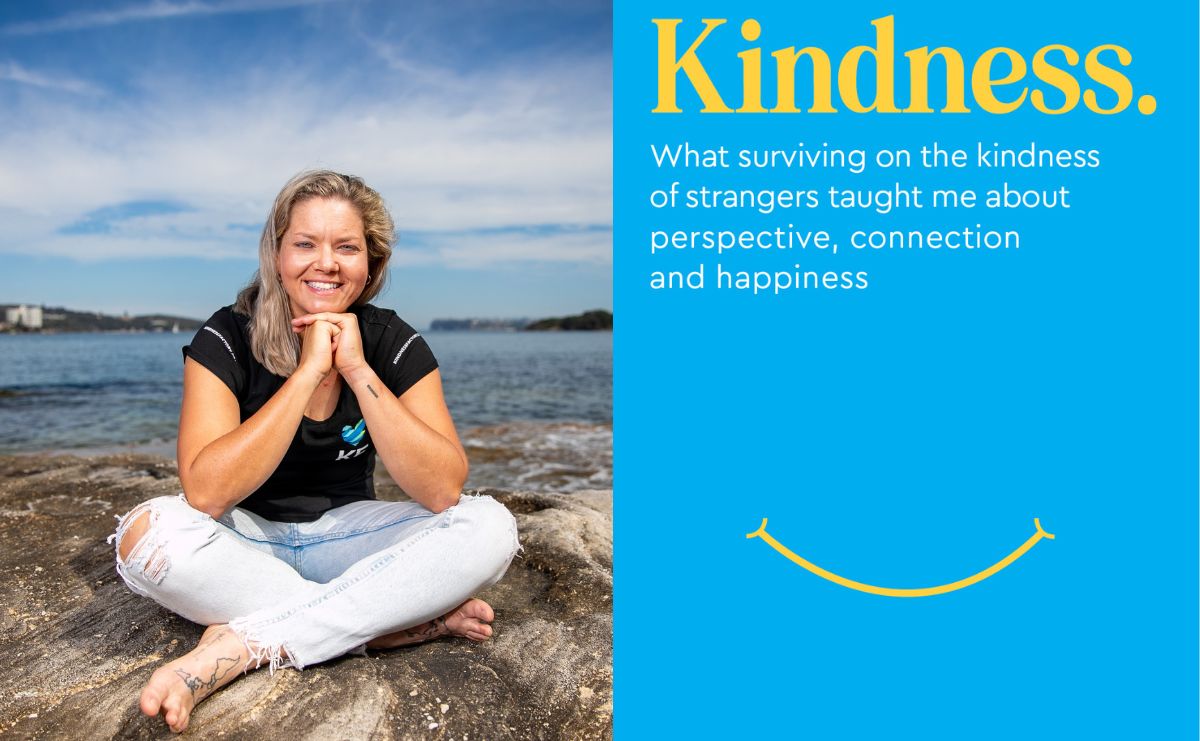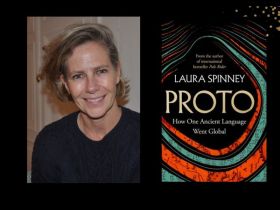A new book from the founder of the movement Kindness Factory shows the power of positive thinking to overcome adversity. Kath Koschel is a former cricketer with a big idea: how to embrace the kindness of strangers.
In 2017 she set off with nothing but a phone, an empty water bottle and an empty backpack, and was determined to live only on the goodwill of people she didn’t know for as long as she could. It was a social experiment that captured the heart of the nation and saw her thrive, and share the lessons of her experience on social media, with corporations, schools and individuals.
Koschel’s manifesto is especially striking when you understand her experience. She chased her dream of becoming a professional cricketer from a young age, but a tragic injury ended her career just days after her first game. She went from earning player of the match to breaking her back. She then learned that her blood pressure was dangerously low and she might lose her leg. After emergency surgery, she had to learn to walk again with six months more rehab.
The world seemed to smile at her when she met Jim Punter, an injured former rugby player. They fell in love and planned to start a family. It was a shock, then, when her partner took his own life. In a wheelchair and struggling to so much as push a button for a lift, she was sustained by small acts of kindness. On the third anniversary of her partner’s death, in 2015, she started a social media page, Kindness Factory, to keep a record of these acts of kindness and to share them. And then tragedy struck again: she was hit by a drunk driver and had to learn to walk again for a second time.
What began as a page for friends became a social movement that inspired people around the globe. They paid forward Koschel’s kindness by posting about how she’d inspired them and helped Koschel find the strength to move forward. In 2017, walking again with a slight limp, Koschel left home with minimal possessions and a sense of trust in the kindness of others.
The best was yet to come. Her social experiment was picked up by the media and her message of kindness was amplified. Koschel began speaking to everybody from corporations to schools. Just after the COVID lockdowns began, Kindness Factory linked up with a group of educators and academics to turn its life lessons into a curriculum for primary school students. The result has launched in schools in Australia, the US and the UK. The insurance arm of Australia Community Media (ACM) donated 2% of the premiums for each policy sold to the Kind Schools network.
This is the story of Koschel’s book Kindness. It’s an accessible, inspiring read particularly aimed at young people. It’s organised by theme and ties into Kindness Factory’s other initiatives. These all underline the benefits of early intervention in youth mental health and resilience-building for people of all ages. Koschel ends her story with a mental health diagnosis of ADHD.
Read: Book review: In Bed with Animals, Bronwyn Lovell
She emphasises the diagnosis is an additional opportunity to spread kindness, compassion and self-compassion. The work of Kindness Factory shows what can happen when kids start with the tools to spread kindness, thanks to Koschel’s extraordinary work to find it and spread it after overcoming adversity.
Kindness, by Kath Koschel
Publisher: Allen & Unwin
ISBN: 9781761068836
Format: Paperback
Pages: 256pp
Publication date: 31 January 203
RRP: $32.99





